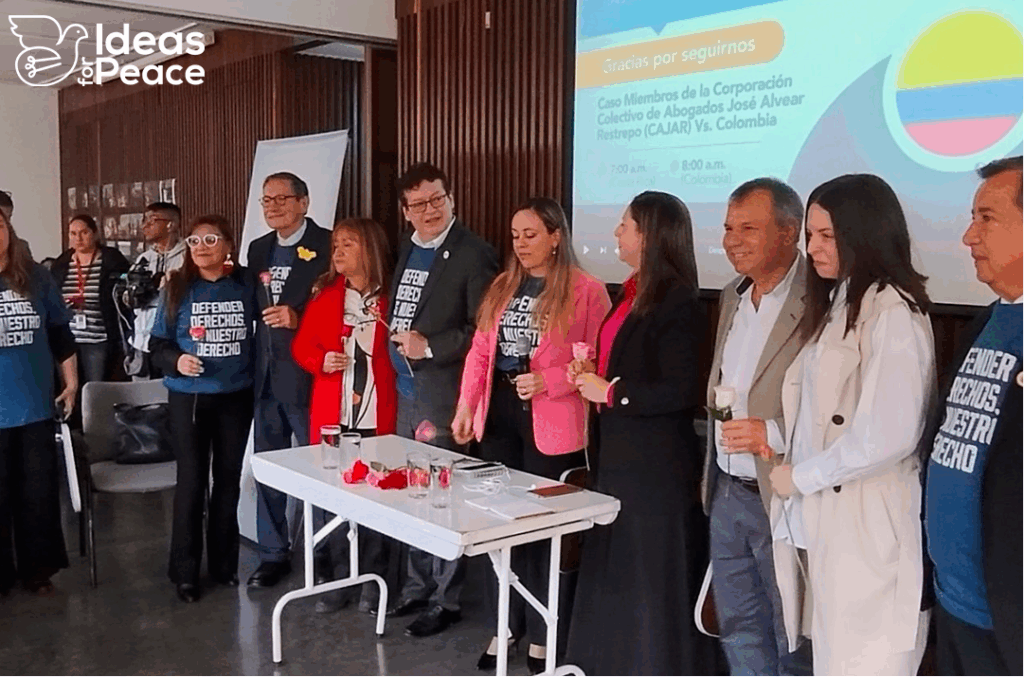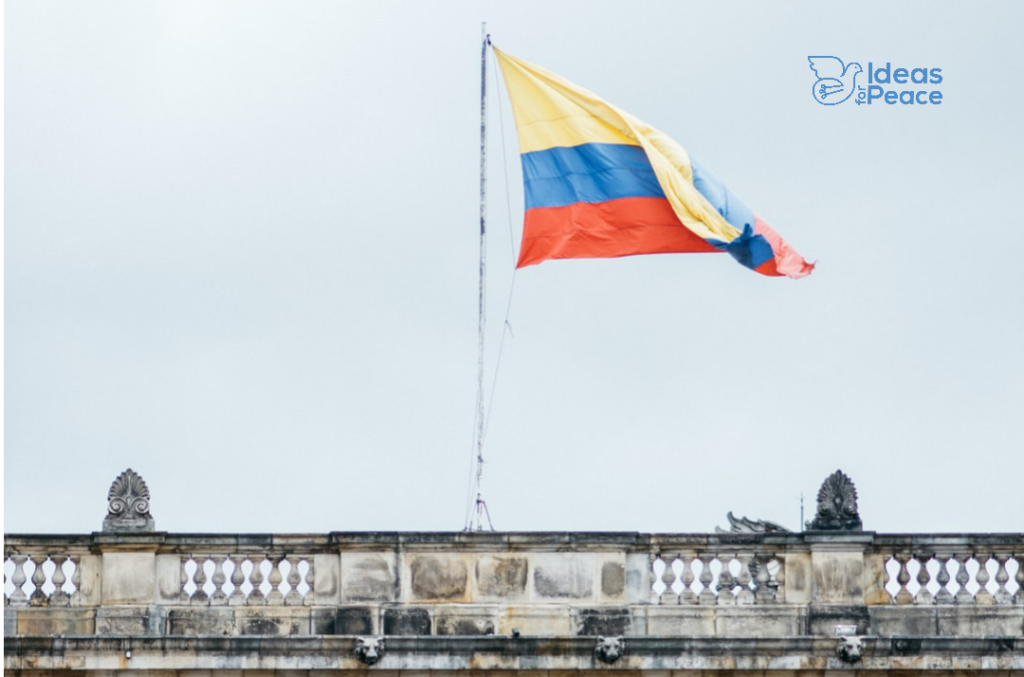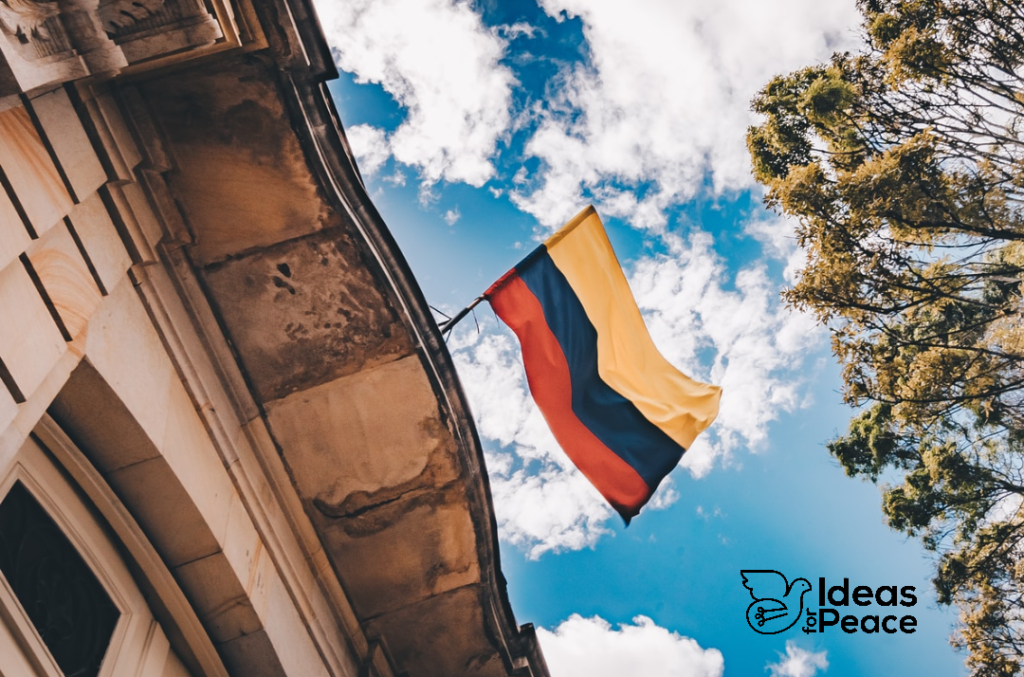Corte IDH Caso Colectivo de Abogados José Alvear Restrepo vs. Colombia

Corte IDH Caso Colectivo de Abogados José Alvear Restrepo (CAJAR) vs. Colombia Autores y Autoras: Annelinne Espitia Pérez, Dayana Ropero Montaño, Charles Pérez Florez, Camilo González García, Artur Granadillo Vital. En el video encontramos la explicación de la sentencia del 18 de octubre de 2023, donde la Corte Interamericana de Derechos Humanos declaró responsable al […]
Democracia y participación en el proceso de paz colombiano: una oportunidad a la paz postliberal

Democracia y participación en el proceso de paz colombiano: una oportunidad a la paz postliberal Autor: Mauricio Abraham Rosales Schettini El conflicto armado colombiano fue de los más prolongados y tardíos en llegar a una fase de negociación entre las partes para ponerle fin. Con más de 50 años de historia, este conflicto atravesó momentos […]
El coronel tiene quien le escriba

El coronel tiene quien le escriba Autor: José Roberto Padilla Rivera Traducido al inglés por Ana Elena Acon Universidad para la Paz. San José, Costa Rica. 18 de mayo de 2021 Coronel, Destacamento militar de las fuerzas revolucionarias en el litoral Atlántico Dueño del mejor gallo del Departamento. En algún lugar de la costa Atlántica […]
Hoist your white flags of peace, but do it tactically!

Hoist your white flags of peace, but do it tactically! Reflections on nonviolent actions during the referendum of the Colombian Peace agreement of 2016 Author: Felipe García Arias Translated into Spanish by Silvana Gordillo González On October 2 of 2016 the national referendum to approve or reject the peace agreements between the Colombian government and […]
Peace vs. Accountability in Colombia
The author, analysing the nature of the conflict in her country, sees a way out to resolve over forty years of conflict in Colombia. She puts reconciliation before prosecution and punishment.
Guillermo Gaviria Correa
The killing of Antioquia state Governor Guillermo Gaviria Correa on May 5, 2003, among ten hostages massacred by FARC guerrillas in reaction to a military rescue attempt, deprived Colombia and the world of a nonviolent political leader whose legacy is no less significant than those of Gandhi and Martin Luther King, Jr.
The Illusion of Democracy in Latin America
In light of the excesses, corruption, “emptiness” and elitism of certain “exemplary” Latin American democracies in the 20th Century, Tara Ruttenberg reflects on the emergence of leftist, populist, participatory democracies in the region, celebrates their successes, and warns against the possibility of backsliding into authoritarianism.
Betancourt for president again?
Key Words: Colombia, hostage, Ingrid Betancourt, Latin American politics, presidential campaign, Uribe
Border dynamics and the conflict in Colombia: A Case Study of Arauca-Apure and Nariño-Esmeraldas
Drawing on four years of field research in two of the most conflict-ridden areas, the Colombian Department of Arauca and the Venezuelan State of Apure and the Colombian Department of Nariño and the Ecuadorian Province of Esmeraldas, this paper identifies conflict dynamics in Colombian border areas and their contributions to Colombia’s internal armed conflict. Major activities of armed groups are analysed, and recommendations are made to increase the presence of civil society in these areas for the greater protection of human rights.
Fueling Conflict in Colombia: Land rights and the political ecology of oil palm
Biofuels have been presented as a solution to many social and economic problems, and have attracted equally strong criticism. In Colombia, palm oil production has been suggested as an alternative to coca, however, as Olivia Gilmore explains, the scheme may cause as many problems as it solves.
